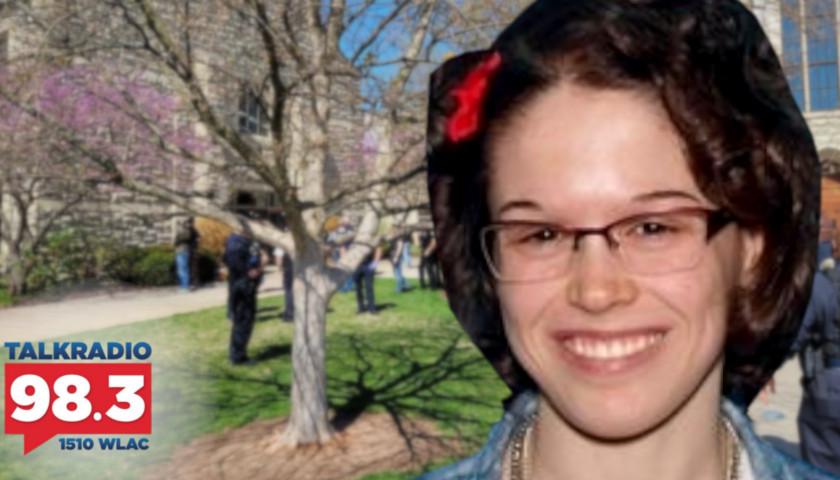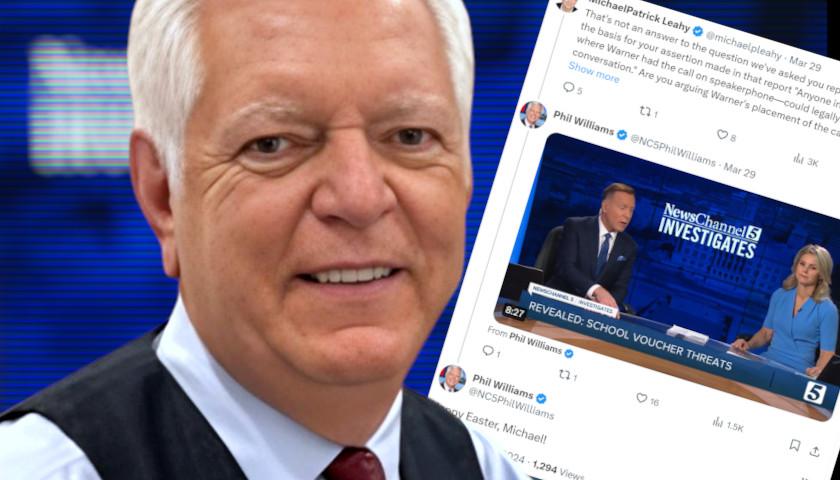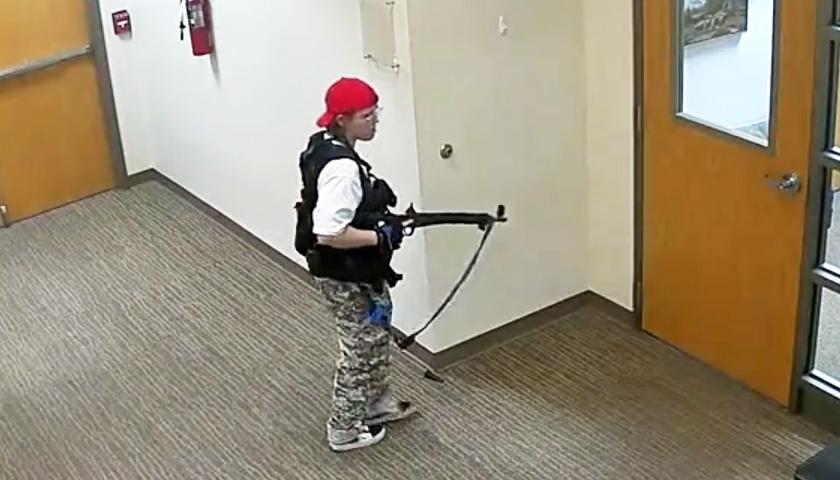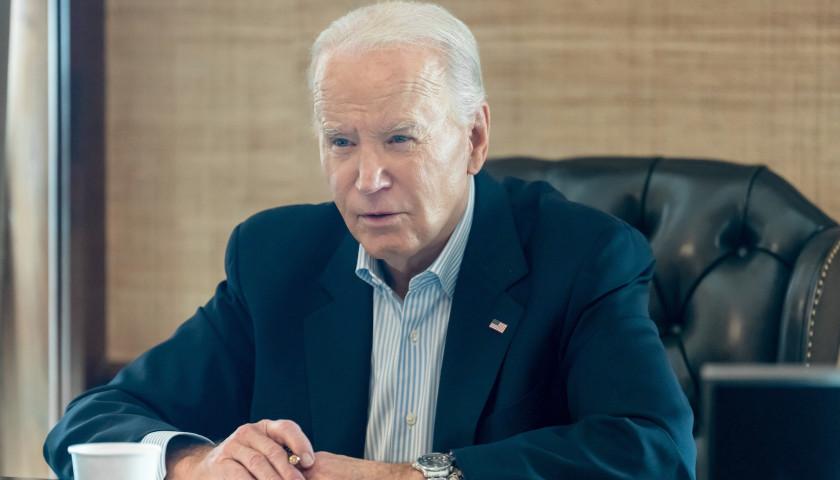Live from Music Row Thursday morning on The Tennessee Star Report with Michael Patrick Leahy – broadcast on Nashville’s Talk Radio 98.3 and 1510 WLAC weekdays from 5:00 a.m. to 8:00 a.m. – host Leahy welcomed recovering journalist Clint Brewer in studio to comment upon the national media’s questioning of the Covenant School shooter’s pronouns.
Leahy: In studio, recovering journalist Clint Brewer. Clint, I want to talk a little bit and share with you our experience reporting on this. This was a very difficult story to report on.
Brewer: It still is.
Leahy: The first 24 hours were the most difficult in terms of the reporting because we didn’t have a lot of information. I thought overall Metro Nashville Police Chief Drake and Don Aaron, who’s a first-rate professional.
Brewer: Don Aaron is one of the best in the business.
Leahy: He’s very good, very solid, very reliable. The public information officer for the Metro Nashville Police Department. I thought they did a pretty good job, frankly on all of this.
Brewer: A fantastic job.
Leahy: But there were a couple of things that were difficult to do. Now, first, I will tell you, on Monday when the incident happened, it was reported at 10:13 a.m. The killer was killed by the police at 10:27 a.m. But the first information came out when they identified the shooter as a 28-year-old female who identified as transgender.
This information came that afternoon from the chief of police. There was a very basic point of fact, which was not clear at the beginning. And we saw rumors about who the killer was. I can tell you Monday afternoon I got a dozen messages from various folks who said, it was this transgender person.
It turned out not to be those particular transgender people. And so obviously we want to report something. We want to report the facts, but we can’t report rumors and innuendo.
Brewer: Yes. There were a lot of screenshots being texted around about who it was. Most of them were memes that come from a website that no one listening should look at, called 4chan, and that’s where those memes were coming from.
Leahy: We got the name of Audrey Hale, a female who identified as transgender. And then the question was, hold it. We got one name, Audrey. We got another name Aiden. What was the birth name of this person? Were they a male who transitioned to female, or were they a female who transitioned to male? Or were they a female who identified as male?
Brewer: And let me tell you what the police are concerned about. Fact. All they’re worried about is the legal identity of the person.
Leahy: There you go.
Brewer: That’s all that matters.
Leahy: The legal identity of the person.
Brewer: Transitioned. Let’s not use that word. I was going to say, we transitioned. We have switched from the world of talking about in the press and society about how people identify.
At this point in the investigation, as far as the police were concerned, the switch had been made to legally identify this person. We don’t want to use their assumed name on social media.
Leahy: How they self-identify.
Brewer: We don’t want to talk about how they self-identify, because that’s not how they’re gonna be referred to in a court of law.
Leahy: Exactly.
Brewer: And that’s not how they’re going to be referred to in investigative documents. That’s not how the public record is gonna reflect their identity. They’re going to go by their legal name and their biological identity. And that is all the police are concerned with.
Now, they might be concerned with how they identify gender-wise for the purposes of the investigation. But in terms of identifying them to the public, they’re going to use the person’s legal name.
Leahy: And that was the correct call by the Chief of Police Drake who went in and said it was a 28-year-old woman who identified as a male. And then the name Audrey Hale came up. Audrey Elizabeth Hale.
And that’s why when I talk about the shooter I say the name, Audrey Elizabeth Hale. Some people don’t even use the name. The reason I say the name is because that is the legal name and because legally this was a female who identified as a male.
Brewer: There is what I feel to be a defensible practice in the press, that once the facts are presented, follow-up stories do not emphasize the identity of the shooter because they don’t want to be part of any kind of trend that would create a copycat or hold out this person’s personality above their acts. It’s a balancing act.
Leahy: I’ve heard others say that.
Brewer: You can see it in other shootings. They begin to refer to it as…
Leahy: And the reason I don’t do that right now is that every time I mention the name is so that there is no confusion about the legal gender of this person at the time.
That’s why you said, and the legal name is Audrey Elizabeth Hale, a female who self-identified as a transgender, using the name Aiden. That’s the person who did all this crime.
Brewer: My understanding is she was communicating with high school friends of hers under her biological name, her female name. She was reaching out to friends from high school.
Leahy: There’s some evidence there. The last communication that she delivered was an Instagram message to a middle school basketball classmate.
Brewer: That was it.
Leahy: And in that message, she signed off, Audrey [Aiden]. That’s her self-identification at that time. This matters significantly when you get to the issue of motive. And to me, there’s an obvious radicalization that took place.
Brewer: We don’t know that. We don’t know it factually.
Leahy: Well, I said to me.
Brewer: Yes, to me. I just want to be clear.
Leahy: This is the reason Clint actually, we do in this regard. And I’ll push back on that statement. The chief of police has stated, that there was resentment towards the Christian school.
Brewer: Towards the school.
Leahy: She said that and resentment towards family. He said that. So that is some evidence. And now he said that based in part upon his reading of this manifesto.
Brewer: And he indicated that was a possibility.
Leahy: He was a little bit more definitive than may have been. He said that there was resentment.
Brewer: So we don’t know the direction of that resentment. We don’t know if it’s just broad resentment toward Christian education.
Leahy: I got the impression picked on at the school. So I got the impression it was a little more specific, but I, back to the reporting side of it. This is the point I wanna make about it.
USA Today and ABC News. So here’s Chief Drake saying it’s a female who self-identified as transgender. USA Today and ABC in questioning at the press conference said she self-identified as a male. Why are you using he/him as a pronoun instead of she/her?
Brewer: Because he’s a police officer and you have to deal with facts that would be applied in court.
Listen to today’s show highlights, including this interview:
– – –
Tune in weekdays from 5:00 – 8:00 a.m. to The Tennessee Star Report with Michael Patrick Leahy on Talk Radio 98.3 FM WLAC 1510. Listen online at iHeart Radio.
Photo “Audrey Hale” and Background Photo “The Covenant School Crime Scene” by Metro Nashville Police Department.




